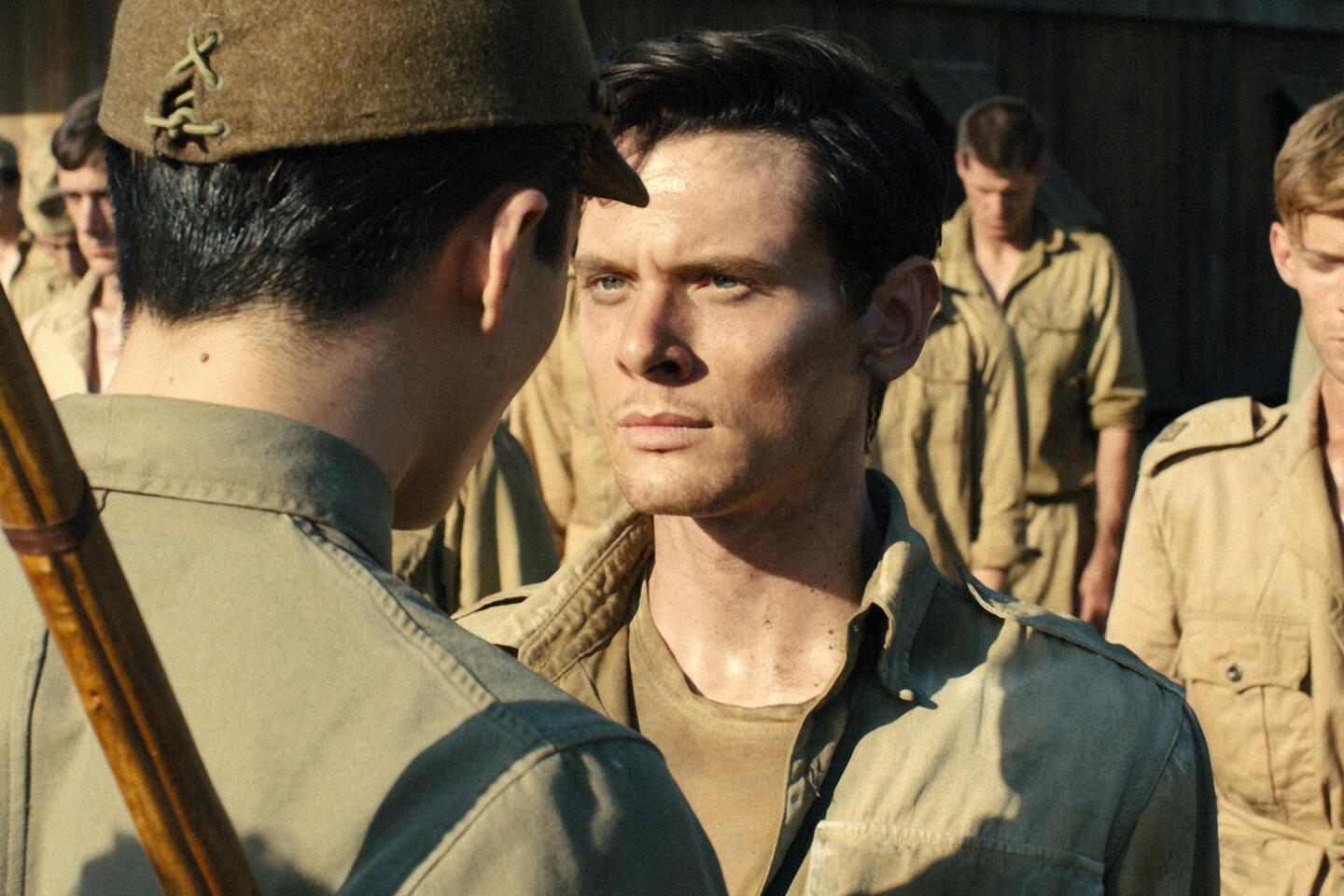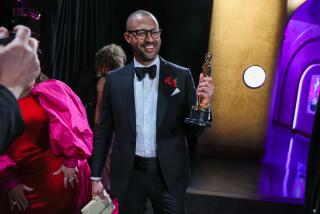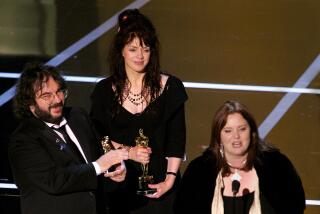Watching the literary film contenders
The Oscar race is so different from book prizes. After a book wins one major prize -- say, the Pulitzer -- it’s less likely to wind up as a contender for the National Book Award. Literary judges like to spread the love around.
Movies are different. Each new nomination and accolade builds toward the grandaddy of them all, the Academy Awards. The lead-up includes guild awards, the Golden Globes, and year-end best-of lists. All push the contenders a little bit ahead in the race.
This year’s race is on; the most recent hurdle were the Writers Guild Award nominations, announced Wednesday. That’s a great place to start in looking at the literary films in contention this year. The writers are paying attention to writing, after all.
The WGA finalists for adapted screenplay include two movies based on memoirs, one on a biography, one on a novel and one based on a comic book. That’s indicative of the field overall, which hasn’t got a single classic novel adaptation this year; instead it leans toward nonfiction projects like memoirs and biographies.
“The Imitation Game,” which stars Benedict Cumberbatch as British mathematician Alan Turing, was based on the biography “Alan Turing: The Enigma” by Andrew Hodges. For many years Turing’s key code-breaking role for the British during World War II, as well as his prosecution after the war for being gay, was kept secret. Hodges’ book was first published in 1983.
The two memoirs-turned-movies up for WGA awards are very different kinds of stories. “American Sniper” is about Navy SEAL Chris Kyle and his time in Iraq, where he had more confirmed kills than any other sniper in American history. In “Wild,” adapted from Cheryl Strayed’s memoir by novelist Nick Hornby, a rule-breaking young woman, bereaved over the death of her mother, walks the Pacific Crest Trail alone to try to rediscover herself.
The thriller “Gone Girl,” the only novel in the WGA mix, was adapted by the author, Gillian Flynn, in her screenwriting debut. “My adaptation of ‘Gone Girl’ began with a filthy, nasty amount of cursing,” Flynn wrote for the Los Angeles Times. “I’d been cocksure certain I was the only person who should attempt to adapt my novel — it’s me, it has got to be me! Then, when my bluff was called and it actually came time to write the script, I realized, to my horror, I might actually have to write the script.”
The fifth WGA finalist is the unexpected “Guardians of the Galaxy.” It’s not often that superhero blockbusters based on comic books come up for writing awards, but this one did.
Outside of the Writers Guild finalists, there are a pile of literary films lining up as possible contenders for acting, costumes and all the other fields. Here’s a quick rundown:
“Unbroken” and “The Theory of Everything” are based on nonfiction stories. “The Theory of Everything” is taken from Jane Hawking’s memoir of her relationship with the physicist Stephen Hawking, the author of “A Brief History of Time” (a rare physics bestseller). “Unbroken” is adapted from the book by Lauren Hillenbrand, a biography of Louis Zamperini, Olympian and World War II soldier whose plane went down over the Pacific.
One animated film may be a contender, “The Boxtrolls,” is based on a children’s book by Alan Snow titled “Here Be Monsters,” part of the series “The Ratbridge Chronicles.”
The five remaining films that seem to be in the mix are all based on fiction. “Inherent Vice,” starring Joaquin Phoenix, is the first of Thomas Pynchon’s books to be made into a film. Meanwhile, John le Carré is a film favorite; his latest contender is “A Most Wanted Man” starring Philip Seymour Hoffman. “The Homesman,” a western starring Hilary Swank and Tommy Lee Jones, is adapted by Jones (who also directed) from the 1988 novel by Glendon Swarthout. “Still Alice” is from Lisa Genova’s 2009 novel and stars Julianne Moore as a Harvard linguist struck with Alzheimer’s disease.
And in an unusual twist that awards-bestowers are finding hard to categorize, director Wes Anderson’s “The Grand Budapest Hotel” was inspired by a handful of novels by Stefan Zweig.
As awards season proves every year, books can make for very good movies. Let’s see how these do.
Book news and more; I’m @paperhaus on Twitter
More to Read
Sign up for our Book Club newsletter
Get the latest news, events and more from the Los Angeles Times Book Club, and help us get L.A. reading and talking.
You may occasionally receive promotional content from the Los Angeles Times.








